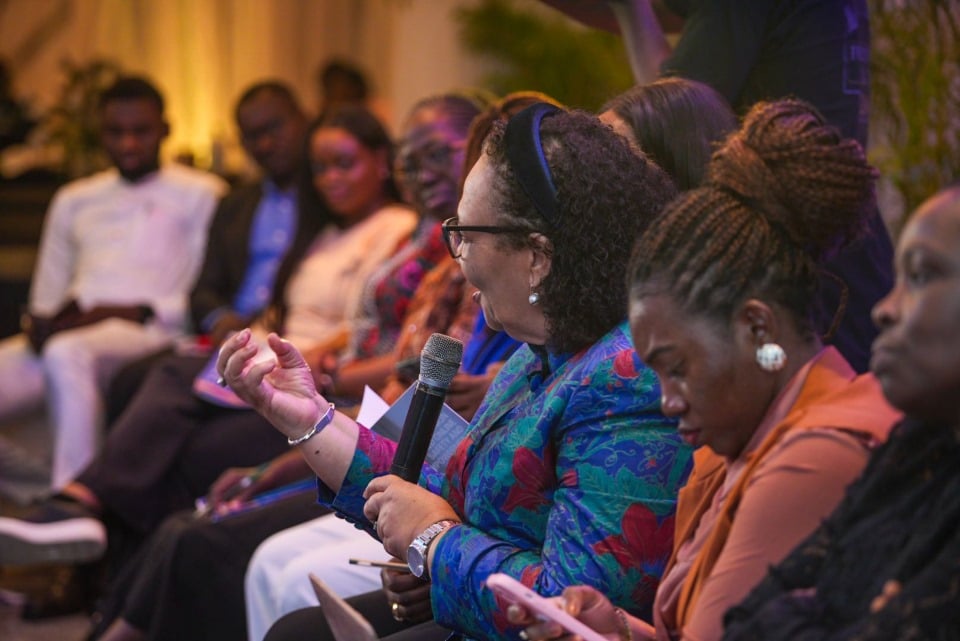Leaders at Nigeria’s Online Safety Forum call for a digital world that protects children by design
At the Lagos Online Safety Forum, 5Rights Trustee Dorothy Gordon urged Nigerian policymakers to move from commitment to implementation – designing digital experiences that respect children’s rights, safety and privacy by default.

A digital world that is safe by design, not risky by default, is within reach – but only if we choose to make it so. Speaking at the TechSocietal Online Safety Forum in Lagos, Nigeria, 5Rights Trustee Dorothy Gordon joined regulators, policymakers, and civil society leaders from across Africa and beyond to discuss how African countries can transform commitments into action for children’s digital safety.
Across the continent, governments are already equipped with strong frameworks to guide this shift. The African Union Child Online Safety and Empowerment Policy, developed with 5Rights’ support, provides a continental roadmap to guide efforts in Nigeria and protect children’s rights in the digital world. Alongside UNCRC General comment No. 25, it makes clear that governments should hold tech companies accountable to deliver age-appropriate digital experiences that ensure children’s safety and privacy by design and default.
“There is an urgent need for child-centred design, stronger accountability from tech companies, and policy actions that reflect African realities. Africa must not only participate in global digital governance conversations but lead in shaping digital environments that are safe, inclusive, and rights-respecting for every child.”
Temitope Ogundipe, Techsocietal Executive Director
At the Forum, conversations focused on ongoing efforts to address the growing influence of technology in children’s lives and the need to ensure that safety and wellbeing are not treated as afterthoughts in digital design, while fostering innovation. 5Rights presented the Children & AI Design Code as a benchmark for legislating AI to be safe by design, and emphasized the importance of engaging directly with children and young people, including through our Youth Engagement Programme.
The stakes are high. In Nigeria, where half of the population is 18 or younger, the Nigerian Communications Commission found that 90% of children report having encountered online risks. Yet, tech companies continue to prioritise profit over children, embedding risky design features into the digital products and services that shape children’s lives daily.
“We must stop treating harm as inevitable. Real safety means addressing the full spectrum of risks children face online, and preventing them from occurring in the first place.”
Dorothy Gordon, 5Rights Trustee
Technology is not neutral – it reflects the values, biases, and priorities of those who design and deploy it. Waiting to intervene until a child is harmed is a failure of design, governance and responsibility. Rather, children’s best interests must be regarded as a core principle, not an afterthought in digital design.
Global Majority countries are already embedding these standards in national legislation. From Indonesia to Brazil, governments across the world are turning commitments into meaningful action.
Now, Nigeria and other African countries must build on regional efforts and international best practices to hold tech companies accountable and ensure the digital world respects and protects every child’s rights.
